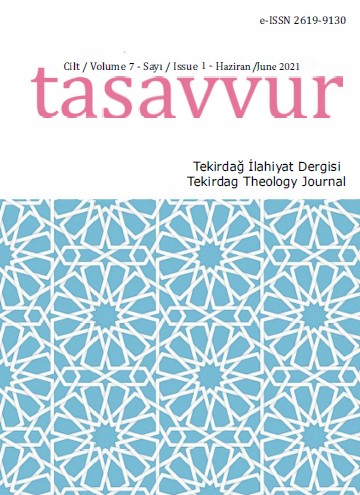Hacı Hasanzâde’nin Mukaddimât-ı Erbaa Hâşiyesi nin Tahkiki
Critical Edition Of Ḥāccī Hasanzāda’s Hāshiya ‘alā Muqaddimāt al-Arba‘a
Author(s): Mustafa Bilal ÖZTÜRKSubject(s): Logic, Ethics / Practical Philosophy, Islam studies, 15th Century, 16th Century, The Ottoman Empire, Ontology
Published by: Tekirdağ Namık Kemal Üniversitesi İlahiyat Fakültesi
Keywords: Kalām; Human Action’s; al-Husn al-Qubh; Ḥāccī Hasanzāda; Ĥāshiya ‘alā Muqaddimāt al-Arba‘a; Critical Edition;
Summary/Abstract: There is no common working style followed in the preparation of the editorial critiques of the ĥāshiya. The overwhelming majority of the ĥāshiya works written on at least one text and commentary (sharḥ), were produced in the Ottoman science-culture basin and period. Ĥāshiya style of writing is an area neglected by the academic community until recently. A claimant is obliged to prove his claim by scientific, legal and moral principles. However, studies that prove or at least support the said judgment have not been completed. The final objective decision should be postponed to the research of manuscripts. Otherwise, the judgment will not go beyond the pre-judgment. The article is intended to give momentum to academic studies on the sharḥ-ĥāshiya writing style. Muqaddimāt al-Arba‘a is a text in which Ṣadr al-Sharī‛ah [die. 747/1346], considered one of the pioneers of the contractor Māturīdī school, analyzes human verbs. Since its establishment, the Māturīdī school has remained sensitive to human freedom and human-centred moral principles. According to the claim, thanks to the four premises, the ontological status of the will has attained a structure that can exist or disappear in terms of expression. The understanding of free God and free man depends on the acceptance of the will in this structure. Otherwise, man and God will not be considered free. The representative of the Ashʿarī thought system Taftazānī [die. 792/1390], critically commented on the text. According to him, the conclusion of the four premises in terms of Ash‘arī doctrine consists of a door creak and a fly hum. There is also Ḥāccī Hasanzāda’s [die. 911/1505-1506] among the scholars who wrote on the order of Fatih Sultan Meḥmed, who wondered the basis of the thought and scientific tension.
Journal: Tasavvur Tekirdağ İlahiyat Dergisi
- Issue Year: 7/2021
- Issue No: 1
- Page Range: 893-953
- Page Count: 61
- Language: Turkish

